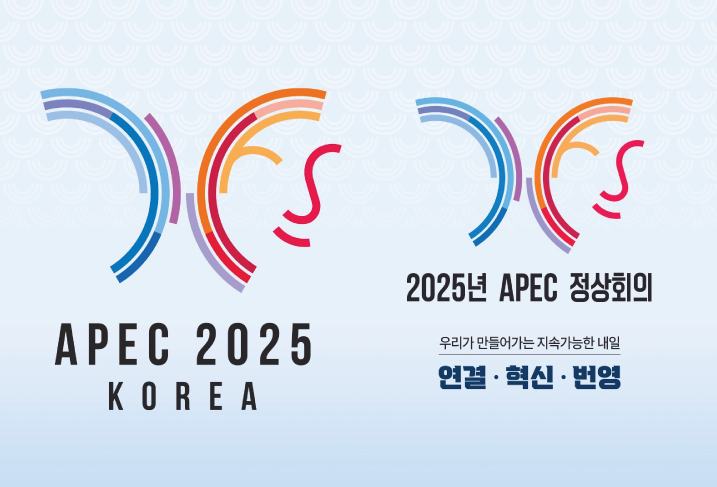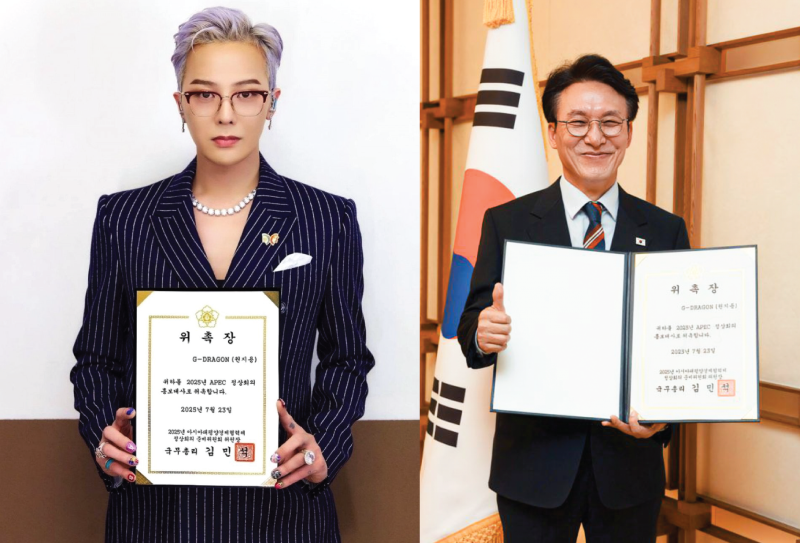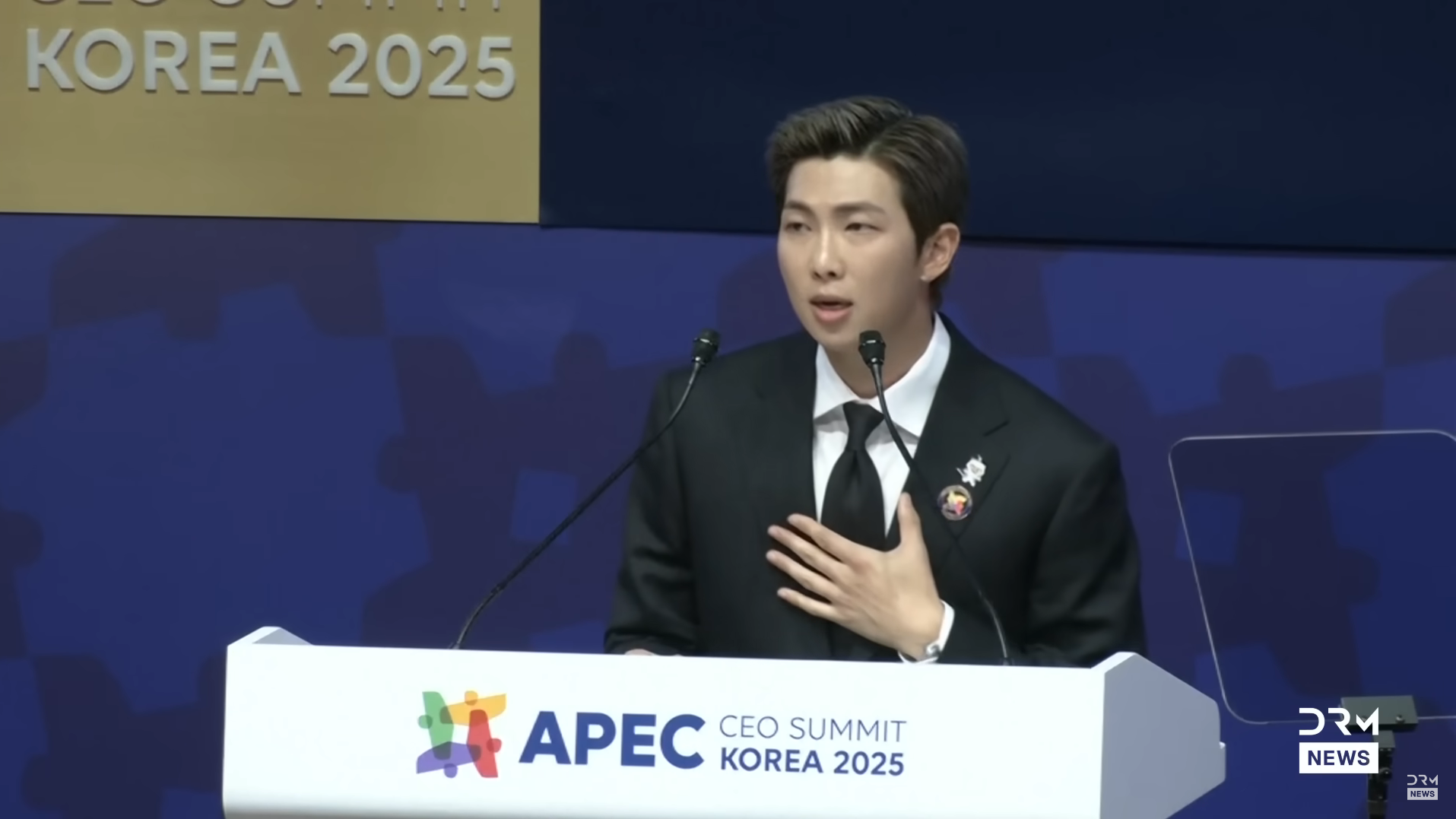In recent decades, the K-pop phenomenon has gained popularity, evolving from mere musical entertainment to a tool of cultural diplomacy that strengthens Korea's global influence. This K-pop diplomacy leverages the appeal of popular artists and groups on the global stage to project cultural values, foster international dialogue, and reinforce Korea's image as a creative and modern powerhouse. A prime example of this is the recent appearances of G-Dragon and Kim Nam Joon (RM) of BTS at the Asia-Pacific Economic Cooperation (APEC) 2025 Summit in Korea, which illustrate how K-pop fits into foreign policy agendas and national branding.

In July of this year, G-Dragon was appointed an honorary ambassador for APEC 2025, marking a clear recognition by the Korean government of pop culture as a diplomatic tool. Prime Minister Kim Min-Seok stated on his Facebook page that G-Dragon is “one of Korea’s leading artists who has consistently demonstrated creativity and innovation.” His role as ambassador aims to create synergy between his global image and the forum’s values, such as technical cooperation, connectivity, and sustainability. Since that date, G-Dragon, as an APEC ambassador, has participated in promoting the summit's key messages globally, including appearing in promotional videos.

G-Dragon performed at the APEC Economic Leaders' Meeting gala dinner for heads of state and high-ranking officials from the 21 member countries. The event took place on Friday, October 31, at the Lahan Select Gyeongju, a four-star hotel in the host city, where the artist gave a cultural performance during the official welcome banquet. According to a media release from Korea Joongang Daily (Oct. 2025), he was the only K-pop representative invited to perform at this high-level event. His presence thus embodied how pop culture becomes a vehicle for symbolic and promotional diplomacy, helping to project "Brand Korea" to the world.
Meanwhile, Kim Nam Joon (RM), leader of BTS, participated as a keynote speaker at the APEC CEO Summit on October 29. His participation marked the first time a K-pop artist has delivered a speech at an economic forum of this level. During his speech, RM argued that K-pop's popularity is based on respect for diversity and the embrace of different cultures; and that its global success stems from uniting people by breaking down barriers through music.
He also compared K-pop to bibimbap. “K-pop is very similar: it takes Korea’s unique aesthetics, emotions, and production system, but you don’t turn away elements of Western music like hip-hop, R&B, or EDM. Just like bibimbap, these parts all keep their unique identities, but mix together to make something new and fresh, and delightful”.
He also urged the leaders to support cultural creators as an engine of innovation and human development. “When you think of investing in tomorrow’s generation, think about culture as well as economics. Culture and arts are a powerful force that moves hearts. They are the fastest messengers that carry diversity and resonance… your policies and support will be the canvas and playground for all the creators”, he said.
His speech reflects that K-pop is not simply entertainment, but a manifestation of a certain kind of diplomacy, contributing both to the creative economy and to Korea’s international standing. K-pop is more than music; it is a complete cultural offering. RM stated that “Kpop creates this powerful and inclusive community. It is because of the special principle of unity of kpop. This is what enables people from such diverse background to come together just through the medium of K-pop. Kpop success came from respect and diversity and embracing world cultures but still holding on to Korea’s unique identity.”

In an increasingly interconnected world, the blend of culture, technology, and diplomacy is gaining increasing importance. Korea demonstrates that knowing how to export its culture also means exerting global influence through music, with the vision of promoting diversity, inclusion, and the country's growth.
From my perspective, as a fan and observer, this convergence between K-pop and diplomacy is incredibly interesting. Seeing artists that I admire participate in public policy forums and international summits gives meaning to my fandom beyond the music itself. Being a fan no longer just means enjoying songs or choreography, but also being part of a global community that represents values, identity, and cultural connection. Supporting the artist transcends consumption; it's also recognizing their ability to impact the world. This motivates me to continue being a proud fan, knowing that this passion participates, even if indirectly, in an international cultural dialogue.
How about this article?
- Like2
- Support0
- Amazing0
- Sad0
- Curious0
- Insightful0


